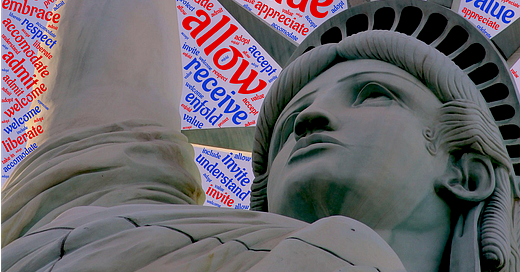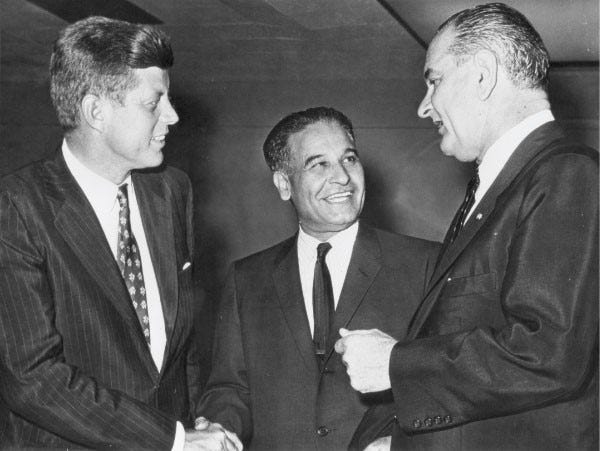Immigration issues today
You may have noticed an uptick in news about immigration this year…even before the horrific made-up stories that jeopardize the people, particularly the Haitian people, in Springfield, Ohio.
A colleague of mine theorized that conservative media and conservative political operatives rely on a particular source of fear to drive their work. Last year the focus was on retail theft, but as news outlets discovered that the National Retail Federation had actually lied about those statistics, the well-worn path of demonizing immigrants.
I’m not sure whether that’s the linear and intentional thought process of conservative message bearers, but what I do know is that the increase in concern over immigration and crime has nothing to do with actual changes in immigrants committing crime. Consistently, research has shown no correlation between being an immigrant and being a criminal, and some research actually shows immigrants (including undocumented immigrants) are less prone to committing crime. But because several anecdotes have been used repeatedly as if they indicate a trend (and any crime is VERY real and painful to the victims, so this isn’t to minimize those experiences), a majority of Americans believe increased immigration has led to an increase in crime. This is despite the fact that also, both violent and property crime have declined across the country.
Any time someone makes a statement about a trend, I do a quick google search for data I trust to see if they’re right. It turns out rarely are those statements backed up by real data, and it gives me confidence to have a conversation with someone who may think things that simply aren’t backed up by fact. I’m not going to convince Fox news execs, but a friend of mine might be glad of the information. And that’s part of what I hope to do as people blame people who aren’t at fault for a problem that isn’t actually the problem they think it is.
Immigration rights in history
While this is a political moment where anti-immigrant sentiments are loud, it’s not the first time. I certainly lived through the late 1970s and early 1980s when there were strong anti-Asian sentiments when American workers were struggling as manufacturing jobs declined. I saw anti-Latino sentiment in the early 2000s when American workers were struggling because their wages were beginning to decline. And in the early 1900s, when workers lived in dangerous and unstable and poorly paid working conditions, anti-immigrant sentiment was also loud.
In those days, social reformers like Jane Addams spoke up for immigrant rights, and so did the Catholic Church, the ACLU, and the NAACP. The civil rights movement continued the work. Throughout our history, when things have gotten tough, we’ve chosen to make immigrants the problem, even when all the data says immigrants actually help the US economy and also increase a diminishing workforce in the US as people born here age and our population declines.
It may not be comforting to know that this happens over and over, but at least it helps us realize that this doesn’t happen in a vacuum, and it usually happens when people are feeling unsure about their future and don’t know who to blame…the folks who want to hold onto power know who to help the rest of us blame, every time.
Immigration ancestor, for a dose of inspiration!
This week we’re talking about immigration, and I want to lift up ancestor Dilip Singh Saund. Saund immigrated to the US in 1924 and got a PhD in mathematics from the University of California at Berkeley in 1924. His immigration process was harrowing, and he became involved in advocating for more racially equitable immigration policies, leading to the passage of the Luce-Cellar Act of 1946 which made it legal for Indians to become US citizens.
When he became a citizen, Saund continued to advocate for equity and justice and ended up becoming the first Indian American to serve in Congress, representing California’s farming area in the central valley. This meant he continued to advocate for racial and immigration justice as well as agriculture, education, and veterans.
While he retired from Congress before the Civil Rights and Immigration Rights Acts of 1965 were passed, he played an instrumental role in laying the foundations for their passage. He once said,
“We must not permit prejudices of the past to cloud our vision of the future. America is known for its democratic principles of freedom, justice, and equality for all."
And that still resonates today as we consider how to think about our relationship to immigration rights.





